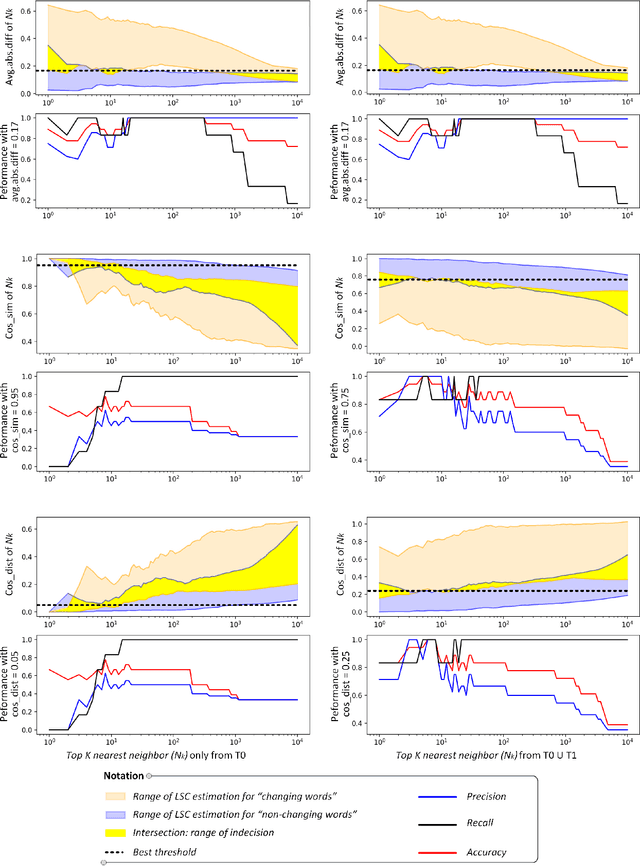Carlos A. Rodriguez-Diaz
NLP-CIC @ DIACR-Ita: POS and Neighbor Based Distributional Models for Lexical Semantic Change in Diachronic Italian Corpora
Nov 07, 2020


Abstract:We present our systems and findings on unsupervised lexical semantic change for the Italian language in the DIACR-Ita shared-task at EVALITA 2020. The task is to determine whether a target word has evolved its meaning with time, only relying on raw-text from two time-specific datasets. We propose two models representing the target words across the periods to predict the changing words using threshold and voting schemes. Our first model solely relies on part-of-speech usage and an ensemble of distance measures. The second model uses word embedding representation to extract the neighbor's relative distances across spaces and propose "the average of absolute differences" to estimate lexical semantic change. Our models achieved competent results, ranking third in the DIACR-Ita competition. Furthermore, we experiment with the k_neighbor parameter of our second model to compare the impact of using "the average of absolute differences" versus the cosine distance used in Hamilton et al. (2016).
 Add to Chrome
Add to Chrome Add to Firefox
Add to Firefox Add to Edge
Add to Edge